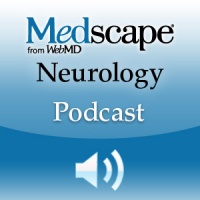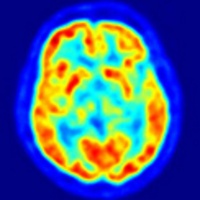Sinopsis
The Neurology podcast is introduced by Editor-in-Chief Robert A. Gross, MD, PhD, who discusses several highlighted articles in the current issue of Neurology®. The podcast regularly features content from Neurology® Clinical Practice, Neurology® Genetics, and Neurology® Neuroimmunology & Neuroinflammation. Opening segments include interviews with authors who summarize a current article and discuss the main findings and clinical implications for neurologists. Regular features also include the Lesson of the Week, Delayed Recall, Whats Trending, and selected content from Neurology® Today. Podcast listeners can earn 0.5 AMA PRA Category 1 CME Credits by answering the multiple-choice questions related to Neurology content in the online Podcast Quiz. (Delayed Recall, Neurology® Clinical Practice, Neurology® Genetics, and Neurology® Neuroimmunology & Neuroinflammation contents are excluded from the CME program). The exams are posted weekly on Tuesday.
Episodios
-
Best Advances in neurology in 2017 (Delayed Recall May 2018)
01/05/2018 Duración: 50minThis month’s Delayed Recall episode includes interviews on topics that were highlighted in the Neurology Today "Best Advances of 2017" editorial. The episode starts with Dr. Andy Southerland's interview with Dr. Joseph Safdieh (April 10, 2018) that features a few editor's pick from the Best Advances in neurology in 2017. Following this clip, we have the full-length interview from the February 28, 2017 episode where Dr. Ted Burns speaks with Dr. Richard Finkel about nusinersen and spinal muscular atrophy. Next, in an interview from the February 13, 2018 podcast, Dr. Tesha Monteith focuses her interview with Dr. Peter Goadsby on CGRP treatments and migraine. In the third and final interview, Dr. Nicole Chiota-McCollum and Dr. Greg Albers regarding the DEFUSE trial results, which first aired in the April 17, 2018 episode of the podcast.
-
May 1 2018 Issue
30/04/2018 Duración: 21min1. Featured Article: Baseline symptoms and basal forebrain volume predict future psychosis in early Parkinson disease2. What’s Trending: Drug pricing This Neurology® Podcast begins and closes with Dr. Robert Gross, Editor-in-Chief, briefly discussing highlighted articles from the May 1, 2018, print issue of Neurology. In the first segment, Dr. Jeff Ratliff talks with Dr. Matthew Barrett about his paper on predictors of psychosis in Parkinson disease. For the “What’s Trending” segment, Dr. Ted Burns discusses drug pricing with journalist Ike Swetlitz.DISCLOSURES: Dr. Ratliff has received a speaker honorarium from Haverford College. Dr. Barrett has received research support from Axovant Sciences, Inc. (clinical trial site PI), Azevan Pharmaceuticals (clinical trial site PI), Merck Sharp & Dohme Corp. (Clinical trial site PI), Biogen (clinical trial site PI), Virginia Center of Alzheimer´s and Related Diseases Research Award Fund (PI), U.S. Department of Defense Neurotoxin Exposure Treatment Parkinson's Rese
-
April 24 2018 Issue
23/04/2018 Duración: 25min1. Featured Article: Practice guideline recommendations summary: Disease-modifying therapies for adults with multiple sclerosis2. What’s Trending: Global, regional, and national burden of neurological disorders during 1990–2015 (from Lancet Neurology)This Neurology® Podcast begins and closes with Dr. Robert Gross, Editor-in-Chief, briefly discussing highlighted articles from the April 24, 2018, print issue of Neurology. In the first segment, Dr. Stacey Clardy talks with Dr. Alexander Rae-Grant about the AAN Practice Guideline on disease-modifying therapies for adults with multiple sclerosis. For the “What’s Trending” segment, Dr. Jason Crowell interviews Dr. Theo Vos about findings from the Global Burden of Diseases, Injuries, and Risk Factors Study and the growing need for clinicians with neurologic expertise.DISCLOSURES: Dr. Clardy has received research support from Western Institute for Biomedical Research (WIBR). Dr. Rae-Grant has served on the Neurology Evidence Review Team, 2011-2018; receives publishin
-
April 17 2018 Issue
16/04/2018 Duración: 27min1. Featured Article: Clinical Reasoning: A young woman with symmetric weakness and behavioral disturbance2. What’s Trending: DEFUSE 3 trial results on thrombectomy vs. standard therapy alone for ischemic stroke This Neurology® Podcast begins and closes with Dr. Robert Gross, Editor-in-Chief, briefly discussing highlighted articles from the April 17, 2018, print issue of Neurology. In the first segment, Dr. Dan Ackerman talks with Dr. Jon Rosenberg about the differential diagnosis of a young patient with symmetric weakness, behavioral changes, and bilateral infarcts. For the “What’s Trending” segment, Dr. Nicole Chiota-McCollum speaks with Dr. Gregory Albers about findings from the DEFUSE 3 clinical trial.DISCLOSURES: Dr. Ackerman, Dr. Rosenberg, and Dr. Chiota-McCollum report no disclosures. Dr. Albers has served on a steering committee for Lundbeck and Covidien; serves on the editorial board for Stroke; holds a patent for RAPID software for MRI and CTP analysis of diffusion and perfusion data; has consulted
-
April 10 2018 Issue
10/04/2018 Duración: 16min1. Featured Article: Rituximab before and during pregnancy: A systematic review, and a case series in MS and NMOSD2. Neurology Today: Top research advances in 2017This Neurology® Podcast begins and closes with Dr. Robert Gross, Editor-in-Chief, briefly discussing highlighted articles from the April 10, 2018, print issue of Neurology. In the first segment, Dr. Stacey Clardy interviews Dr. Riley Bove about her paper on rituximab treatment before and during pregnancy in patients with multiple sclerosis and NMOSD. For the second segment, Dr. Andy Southerland speaks with Dr. Joseph Safdieh on the Neurology Today editorial selections for the top research advances in 2017.DISCLOSURES: Dr. Clardy has received research support from Western Institute for Biomedical Research (WIBR).Dr. Southerland serves as Podcast Editor for Neurology; receives research support from the American Heart Association-American Stroke Association National Clinical Research Program, American Academy of Neurology, American Board of Psychiatry
-
April 3 2018 Issue
03/04/2018 Duración: 32min1. Featured Article: The Mitochondrial Disease Patients’ Diagnostic Odyssey: Results of A Survey2. What’s Trending: Teen concussion and early tauopathyThis Neurology® Podcast begins and closes with Dr. Robert Gross, Editor-in-Chief, briefly discussing highlighted articles from the April 3, 2018, print issue of Neurology. In the first segment, Dr. Jason Crowell talks with Drs. John L.P. Thompson and Michio Hirano about their Neurology: Genetics paper on the long journey to diagnosis for patients with mitochondrial disease. For the “What’s Trending” segment, Dr. Jeff Ratliff speaks with Dr. Lee Goldstein about teen concussion and early tauopathy.DISCLOSURES: Dr. Crowell reports no disclosures. Dr. Thompson has recieved research support from Novartis, NIH/NINDS (1U54 NS078059-06), NIEHS (P30 ES009089-15), and the FDA (UFDSP00011270). Dr. Hirano has received honoraria for serving on advisory boards of Stealth Biotherapeutics, Sarepeta, and Biogen; received received travel funds from the American College of Medica
-
Practice Current: Managing Epilepsy during Pregnancy (April 2018)
02/04/2018 Duración: 27minThis special Delayed Recall episode is the third installment of our new Practice Current segment. In this episode, Dr. Luca Bartolini speaks with epilepsy experts Dr. Cynthia Harden and Dr. Torbjörn Tomson. They discuss the results of a recent Practice Current (a section of Neurology® Clinical Practice) survey regarding epilepsy treatment and management during pregnancy, and share their thoughts regarding best practices. This is the first appearance of this interview in the podcast.
-
March 27 2018 Issue
26/03/2018 Duración: 22min1. Featured Article: IgLON5 antibody: Neurological Accompaniments & Outcomes in 20 patients2. What’s Trending: Health policy update - Coding, Reimbursement & Quality Payment ProgramThis Neurology® Podcast begins and closes with Dr. Robert Gross, Editor-in-Chief, briefly discussing highlighted articles from the March 27, 2018, print issue of Neurology. In the first segment, Dr. Stacey Clardy talks with Dr. Andrew McKeon about his Neurology: Neuroimmunology & Neuroinflammation paper describing IgLON5 autoimmunity. For the “What’s Trending” segment, Dr. Jason Crowell speaks with Luana Ciccarelli and Amanda Napoles on regulatory updates in coding and reimbursement, MACRA, and tips for private practitioners on participating in the Quality Payment Program.DISCLOSURES: Dr. Clardy has received research support from Western Institute for Biomedical Research (WIBR).Dr. McKeon has patent applications pending for GFAP and MAP1B as markers of neurological autoimmunity and paraneoplastic disorders; has consulte
-
March 20 2018 Issue
19/03/2018 Duración: 25min1. Featured Article: Molecular Genetic Testing for Hereditary Ataxia – What Every Neurologist Should Know2. What’s Trending: Recent changes to Maintenance of Certification Requirements This Neurology® Podcast begins and closes with Dr. Robert Gross, Editor-in-Chief, briefly discussing highlighted articles from the March 20, 2018, print issue of Neurology. In the first segment, Dr. Jeff Ratliff talks with Dr. Thomas Bird about his Neurology: Clinical Practice paper on the benefits and limitations of exome sequencing to identify hereditary ataxias. For the “What’s Trending” segment, Dr. Stacey Clardy with Dr. Laurie Gutmann about recent updates to the Maintenance of Certification requirements and tips to ease the process for neurologists.DISCLOSURES: Dr. Bird serves on the editorial board for GeneReviews.org; holds patents for genetic testing technology for CMT1C and SCA14; and has received research support from the Department of Veterans' Affairs (Merit Research Grant, PI, 2009-2017). Dr. Gutmann serves on the
-
March 13 2018 Issue
12/03/2018 Duración: 29min1. Featured Article: Atrial fibrillation detected after stroke is related to a low risk of ischemic stroke recurrence2. What’s Trending: Evaluation of idiopathic transverse myelitis revealing specific myelopathy diagnosesThis Neurology® Podcast begins and closes with Dr. Robert Gross, Editor-in-Chief, briefly discussing highlighted articles from the print issue of Neurology. In the first segment, Dr. Mark McAllister talks with Dr. Luciano Sposato about their paper on the relationship between atrial fibrillation detection and ischemic stroke recurrence. For the “What’s Trending” segment, Dr. Ted Burns speaks with Dr. Mark Keegan and Dr. Nick Zalewski about their paper on idiopathic transverse myelitis and myelopathy diagnoses.DISCLOSURES: Dr. Sposato has received travel or speaker honoraria from Boehringer Ingelheim and Pfizer; serves on the Editorial Board for Neurology; and has received research support from Kathleen & Dr Henry Barnett Research Chair in Stroke Research, Boehringer Ingelheim (salary suppo
-
Delayed Recall - Cognitive Impairment (March 2018)
06/03/2018 Duración: 27minThis month’s Delayed Recall episode includes three recent interviews on the topic of cognitive impairment. In the first interview, from the January 16, 2018 episode, Dr. Jeff Burns speaks with Dr. Ronald Petersen about the recent AAN practice guideline paper on mild cognitive impairment. Next, in and interview from the January 2, 2018 podcast, Dr. Ted Burns and Dr. Damian Garde discuss recent Alzheimer disease trials; and in the third and final interview, Dr. Matthew Elliot talks with Dr. Hugh Markus about his paper “Multimodal MRI markers and dementia risk in cerebral small vessel disease.” This interview first aired in the October 31, 2017 episode of the podcast.
-
March 6 2018 Issue
05/03/2018 Duración: 24min1. Featured Article: Relapse occurrence in women with multiple sclerosis during pregnancy in the new treatment era2. What’s Trending: Sleep architecture and risk of dementiaThis podcast begins and closes with Dr. Robert Gross, Editor-in-Chief, briefly discussing highlighted articles from the March 6, 2018, issue of Neurology. In the first segment, Dr. Stacey Clardy talks with Dr. Raed Alroughani about his article on relapse recurrence during pregnancy in women with multiple sclerosis. In the second part of the podcast, you’ll hear Dr. Jeff Burns interviews Dr. Sudha Seshadri about sleep and dementia risk.DISCLOSURES: Dr. Clardy has received research support from Western Institute for Biomedical Research (WIBR). Dr. Alroughani served in scientific advisory boards of Novartis, Bayer, Merck-Sorono, Roche, Biogen, Sanofi-Geznyme; has received speaker and travel honoraria from Novartis, Bayer, Merck-Sorono, Biogen, Roche, Sanofi-Genzyme and GSK; and has received research grants from Biogen, Novartis and Sanofi-Gen
-
February 27 2018 Issue
26/02/2018 Duración: 28min1. Featured Article: Interdisciplinary Response to Contemporary Concerns about Brain Death Determination2. What’s Trending: Gene Drive, part 2This podcast begins and closes with Dr. Robert Gross, Editor-in-Chief, briefly discussing highlighted articles from the February 27, 2018 issue of Neurology. In the first segment, Dr. Andy Schomer talks with Dr. Ariane Lewis about her paper on the determination of brain death. In the second part of the podcast, Dr. Ted Burns speaks with Dr. Kevin Esvelt for part two of the discussion on gene drives (the first of these segments aired in the Feb. 20 episode).
-
February 20 2018 Issue
19/02/2018 Duración: 20min1. Featured Article: Intravenous thrombolysis and platelet count2. What’s Trending: Gene Drives, part IThis podcast begins and closes with Dr. Robert Gross, Editor-in-Chief, briefly discussing highlighted articles from the February 6, 2018, issue of Neurology. In the first segment, Dr. Kevin Barrett talks with Dr. Henrik Gensicke about his article on the effect of platelet count on bleeding risk and mortality in stroke patients treated with IV thrombolysis. In the second part of the podcast, you’ll hear the first part of Dr. Ted Burns’ interview with Dr. Kevin Esvelt about gene drives.DISCLOSURES: Dr. Barrett serves on the editorial board of Neurology and Neurohospitalist; has received research/grant support from the National Institute of Neurological Disorders and Stroke for serving on the executive committees of the CREST-2 and SHINE clinical trials; and receives publishing royalties from Wiley Blackwell. Dr. Gensicke receives research support from Swiss National Science Foundation (33CM30-124119 and P300PB
-
February 13 2018 Issue
12/02/2018 Duración: 31min1. Featured Article: Medical Retirement from Sport after Concussions: a practical guide for a difficult discussion2. What’s Trending: CGRP drugs and treatment of migraineThis podcast begins and closes with Dr. Robert Gross, Editor-in-Chief, briefly discussing highlighted articles from the February 13, 2018 issue of Neurology. In the first segment, Dr. Jason Crowell talks with Dr. James Noble about his Neurology® Clinical Practice paper on athletes who retire from sport following concussion. In the second part of the podcast, Dr. Tesha Monteith focuses her interview with Dr. Peter Goadsby on CGRP and migraine. DISCLOSURES: Dr. Crowell reports no disclosures. Dr. Noble received travel honoraria for the Big 10/Ivy League concussion summit; has a pending patent for a real-time concussion diagnostic tool; has consulted with Prophase, LLC; has received research support from NIH (U54 NS081765, R01 NS067443, R01AG054536, T35 AG044303); and holds stock options in BATS-TOI. Dr. Goadsby has consulted for Akita, Allergan
-
February 6 2018 Issue
05/02/2018 Duración: 33minFeatured Article: Burnout, Wellness, and the Future of Our ProfessionThis podcast begins and closes with Dr. Robert Gross, Editor-in-Chief, briefly discussing highlighted articles from the February 6, 2018, issue of Neurology. This week, Dr. Ted Burns talks with Dr. Terry Cascino about his special address on burnout and the future of neurology. DISCLOSURES: Dr. Burns is the deputy section editor of the Neurology® podcast; has served on scientific advisory boards for Argenx, UCB, and CSL Behring; has received travel funding/speaker honoraria from Argenx and Alexion; and has received support for consulting activities from UCB Pharma and CSL Behring. Dr. Cascino is the immediate past president of the American Academy of Neurology.
-
Delayed Recall - February 2018
01/02/2018 Duración: 46minThis month's Delayed Recall episode comprises an update regarding recent developments in the field of stroke, and includes four interviews from 2017 that focused on this topic. The first interview aired in the September 12 episode, and features a discussion between Dr. Kevin Barrett and Dr. Tudor Jovin regarding the recent DAWN trial. Next, Dr. David Ackerman and Dr. Gene Latorre take a look at the stroke rehabilitation quality measurement set update that was published in Neurology® in October of 2017. This interview appeared as part of the Oct. 10 podcast episode. The third interview of this month's Delayed Recall was featured in the October 24 episode; in it, Dr. Justin Sattin talks about the use of Tenecteplase for acute ischemic stroke with Dr. Nicola Logallo. The final interview, by Dr. Nichole Chiota with Dr. Steven Messe, covers the recent PFO Update. This segment was featured in the November 7 episode.
-
January 30 2018 Issue
29/01/2018 Duración: 26min1. Featured Article: Racial disparities in refusal of stroke thrombolysis in Chicago2. Lesson of the Week: Emergency management of migraineThis podcast begins and closes with Dr. Robert Gross, Editor-in-Chief, briefly discussing highlighted articles from the January 30, 2018, issue of Neurology. In the first segment, Dr. Jennifer Majersik talks with Dr. Scott Mendelson about his paper on differences in tPA refusal in black vs non-black patients with acute ischemic stroke. In the second part of the podcast, Dr. Teshamae Monteith focuses her Lesson of the Week interview with Dr. Benjamin Friedman on IV prochlorperazine plus diphenhydramine vs IV hydromorphone for emergency migraine treatment.DISCLOSURES: Dr. Majersik serves on the editorial board for Neurology; receives research support from National Institutes of Health (grant U10 NS086606); and served as an expert witness for FAVROS, LCC. Dr. Mendelson has received travel honoraria from Medtronic; has received research support from University of Chicago and I
-
Jan 23 2018 Issue
22/01/2018 Duración: 23min1) Featured Article: Collateral response modulates the time–penumbra relationship in proximal arterial occlusions2) Lesson of the Week: Migraine and neuromodulationThis podcast begins and closes with Dr. Robert Gross, Editor-in-Chief, briefly discussing highlighted articles from the January 23, 2018, issue of Neurology. In the first segment, Dr. Kevin Barrett talks with Dr. Smriti Agarwal about her paper on collateral circulation in proximal arterial occlusions and extending the scope of thrombolytic therapy. In the second part of the podcast, Dr. Teshamae Monteith focuses her Lesson of the Week interview with Dr. Stewart Tepper on acute and preventative neuromodulation treatment for migraine. DISCLOSURES: Dr. Barrett serves on the editorial board of Neurology and Neurohospitalist; has received research/grant support from the National Institute of Neurological Disorders and Stroke for serving on the executive committees of the CREST-2 and SHINE clinical trials; and receives publishing royalties from Wiley Bla
-
January 16 2018 Issue
15/01/2018 Duración: 25min1. Featured Article: Practice guideline update summary: Mild cognitive impairment2. Lesson of the Week: Migraine and hormonesThis Neurology® Podcast begins and closes with Dr. Robert Gross, Editor-in-Chief, briefly discussing highlighted articles from the January 16, 2018, print issue of Neurology. In the first segment, Dr. Jeff Burns talks with Dr. Ronald Petersen about the updated 2001 AAN guideline on prevalence, prognosis, and treatment of MCI. For the Lesson of the Week, Dr. Teshamae Monteith speaks with Dr. Jelena Pavlovic about the association between hormones and migraine. DISCLOSURES: Dr. Burns has served on the DSMB for NIH-funded trials (non-profit entities); serves on the editorial board for Journal of Alzheimer's Disease; has consulted for Grifols, USA; has served on Eli Lilly Amyvid Speaker's Bureau; and has received research support from Eli Lilly, Avid Radiopharmaceuticals, Toyama Chemical Company, Merck, Biogen, AbbVie, Novartis, vTv Therapeutics, Janssen, and NIH (R01AG058557, R01AG053312, R














